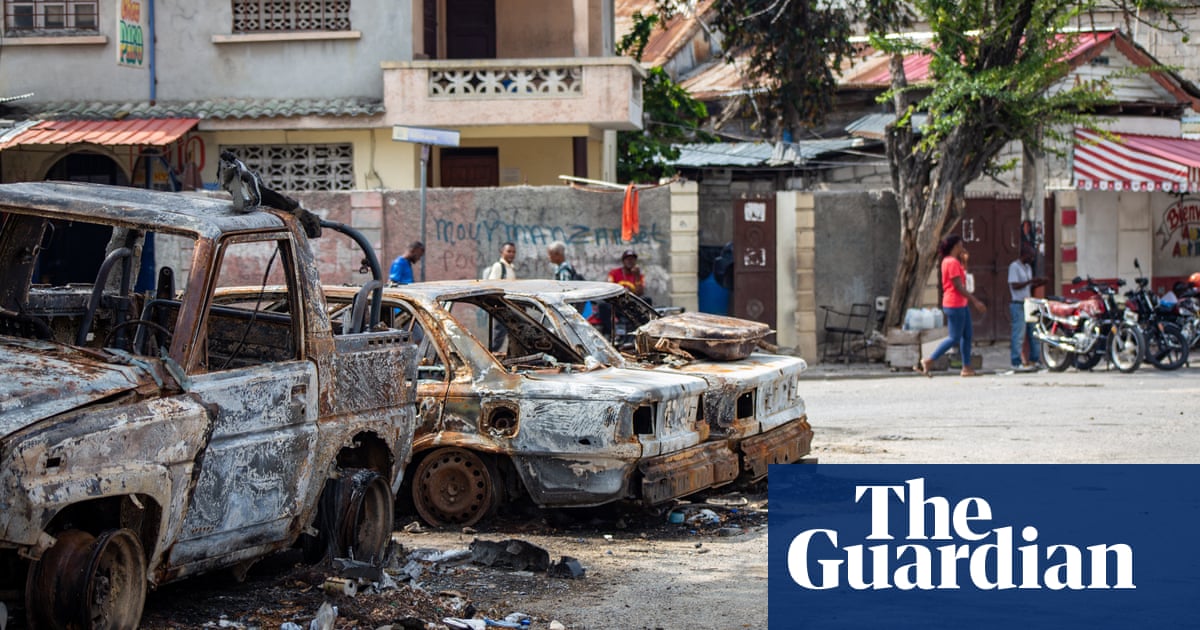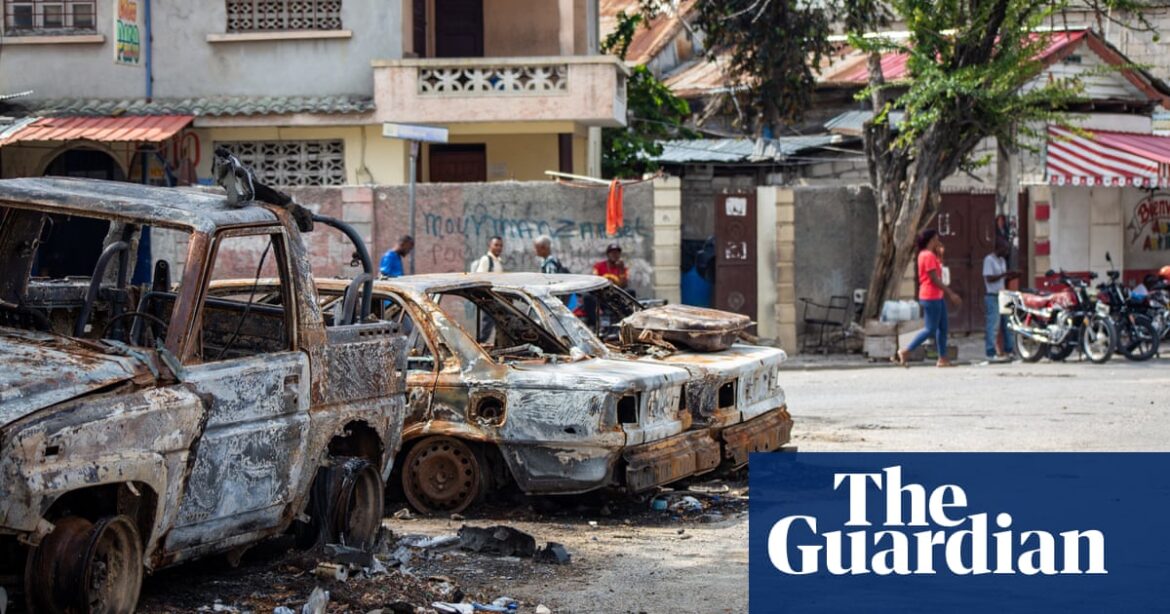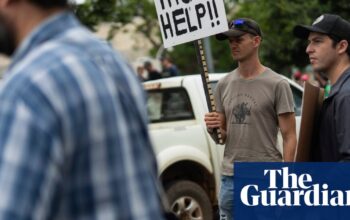
More than 70 Haitians expelled from the United States have been flown back to Haiti on the first deportation flight since heavily armed gangs launched a bloody insurrection which has paralysed the capital and forced the prime minister from office.
The flight, which landed in the port city of Cap-Haïtien early on Thursday, was described as “inhumane” by human rights activists who warned that deportees would likely be targeted by the criminal factions who control most of the country.
“This is reckless and cruel,” said Nicole Phillips, legal director of the refugee advocacy group the Haitian Bridge Alliance. “These people are being sent back to an impossible situation where there is no work, no healthcare and no schools to send their children to. On top of that, there is also no real Haitian government to consent to the flight, and no one who can keep these people safe.”
Haiti has been in turmoil since President Jovenel Moïse was assassinated in July 2021, but in the past two months the country’s deep, overlapping crises have reached new lows as the gangs have joined forces to unleash an unprecedented wave of brutal violence.
The US airlifted non-essential embassy personnel and other citizens from Haiti late last month, with state department spokesperson Matthew Miller, saying: “The security situation in Haiti remains untenable due to the violence caused by gangs that claim to represent the Haitian people but thrive on violence and misery.”
The acting prime minister, Ariel Henry, has since stepped down and a transitional council has been formed, but conditions remain equally dire with deadly gun skirmishes a daily occurrence, 4 million people regularly going hungry and the public health system on its knees.
Heavily armed gunmen continued to wage terror on the country on Thursday, reportedly shooting dead eight civilians in the Carrefour neighbourhood in the western limits of the capital and taking control of a police station.
The anarchy is expected to deteriorate further as gangs respond to Tuesday’s announcement that members of a transitional council had been appointed to choose Henry’s successor, said Diego Da Rin, a Haiti analyst at the International Crisis Group.
“The gangs have been increasingly occupying, looting or burning down medical facilities, schools, shops and houses,” Da Rin said. “If they continue to blockade the ports and the capital’s airport, the lack of supplies and food could seriously worsen the humanitarian crisis in Port-au-Prince and the rest of the country.”
The US most likely flew migrants to the north of the country as the capital is logistically impossible to reach given the lack of law and order, Phillips said.
While Cap-Haïtien may be far from the violence in Port-au-Prince, most of the deportees are not from the far north of the country, so will have to risk travelling through active conflict zones and gang-controlled checkpoints to get to their homes and families, Phillips said.
Their perceived connections to the US also make them vulnerable targets to gangs who extort, kidnap and torture for financial gain, she added.
after newsletter promotion
“Once gangs realise that deportation flights are coming into the north of the country, operations will be set up to take advantage of these people … The US is actively putting people in harm’s way.”
US deportations to Haiti have been halted in the past when the country was in crisis, but upcoming elections mean Joe Biden is using Haitians to look tough on migration, Phillips said.
“Once again Haitians are the pawns in this political game – and the consequences will be dire for them,” she said.
Yvette D Clarke, a Democratic congresswoman and the co-chair of the House Haiti Caucus, said the decision to resume deportations was “unacceptable”.
“Haiti is experiencing extreme political instability, rampant violence, and insecurity beyond imagine,” Clarke tweeted. “We should be focusing on finding solutions to prevent suffering without putting people at risk.”
Source: theguardian.com



